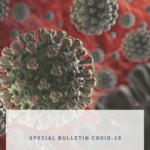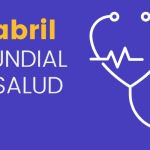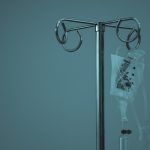Since 2000, World Cancer Day has been celebrated on February 4 with the aim of raising awareness and promoting measures to combat this disease, which affects millions of people in the EU. Cancer research and innovation is one of the European Union’s top health priorities.
No one is spared the possibility of cancer, regardless of age. So says Polish EEP MEP Janina Ochojska, who is being treated for breast cancer. “This is something that somehow connects Europe, because together we fight against something that affects us all. No one is excluded from this lottery.”
The European Union recorded 1.4 million deaths caused by the disease and three million new diagnoses in 2018 alone. This makes cancer the second leading cause of death, after cardiovascular diseases. In many EU countries, it ranks number one for people aged 45-64. However, innovative treatments and better access to care mean that the life expectancy of many Europeans is lengthening after diagnosis.
The forecasts of how this disease will evolve are as follows:
-
By 2035, the number of cancer cases could be doubled
-
An estimated 40% of the population will face cancer at some point in their lives
-
There are more than 200 types of cancer
EU measures to fight cancer
The EU is investing in various activities such as research projects, clinical trials and training programmes.
The EU also complements member states’ efforts by:
- making it easier to cooperate and share information
- adopting legislation to address risk factors (such as tobacco, carcinogens or pesticides)
- running awareness rising campaigns
Parliament’s Special Committee on Beating Cancer started work in September 2020 and is looking at:
- Measures for tobacco control, reducing obesity, alcohol use, air pollution etc.
- How to support research where a common EU approach is needed
- Ways to support non-profit clinical trials
- How to facilitate the transparency of treatment prices to improve the affordability and accessibility
Marking World Cancer Day, the committee invited health experts to discuss the impact of Covid-19 and other health threats on cancer care and research and launched the survey for cancer organisations to prepare better for future crises.
What is the role of the Knowledge Centre?
The Knowledge Centre on Cancer is an independent knowledge broker providing evidence-based support to policies, while expanding the Commission’s existing IT systems, gateways, portals, platforms and databases on cancer. It will:
- Map and provide the latest evidence and statistics on cancer;
- Monitor cancer trends so that the effectiveness of preventive strategies and screening programmes can be evaluated;
- Provide European guidelines for cancer prevention, screening, diagnosis and care to improve cancer outcomes and reduce inequalities between EU regions;
- Help shape policies for cancer prevention related to the environment and healthy lifestyles, including tobacco and alcohol control;
- Identify research or policy gaps;
- Provide a space to coordinate many cancer initiatives on one platform;
- Help to reduce inequalities in cancer prevention and care across the EU.
Source
Más información
Breast cancer predisposition genes exposed






Leave a Reply